As the world's brightest young mathematical minds converged on Australia's Sunshine Coast last week for the year's biggest global maths competition, one moment made a lasting impression before the competition began.
During the opening ceremony of the International Mathematical Olympiad (IMO), when the six-member Chinese team was introduced, many people noticed a male student walking unsteadily next to his teammates. He is Xu Qiming, a second-year student at a high school in Wuhan.
Xu Qiming suffers from cerebral palsy - a permanent brain disorder caused by a lack of oxygen at birth. The condition affects his motor control, such as body movements, coordination and balance.
Despite facing physical difficulties all his life, Xu Qiming showed an early talent for mathematics and has since established himself in the notoriously competitive Chinese team.
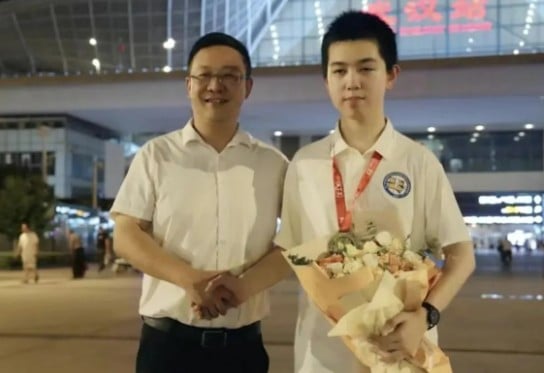
“I have never seen a Math Olympiad contestant like him,” a math coach who live-streamed this year’s Olympiad on a Chinese social media platform told the South China Morning Post .
“Xu Qiming did not receive any special health care. According to IMO rules, all contestants must complete three problems in 4.5 hours each day for two consecutive days of competition,” said an anonymous woman.
Every year, China selects the top 30 high school students from across the country to be part of the national Mathematical Olympiad training team. After two rounds of competition, six students are selected to be part of the official team to compete in the International Mathematical Olympiad.
Although not the contestant with the highest score in the past two years, Qiming still showed stable performance in China's elite team.
The head coach of the national team at the China Mathematical Olympiad has been full of praise for Qiming after he was selected for the international team in March.
“He has shown outstanding ability in solving difficult problems, showing composure and intelligence beyond his peers,” he said.
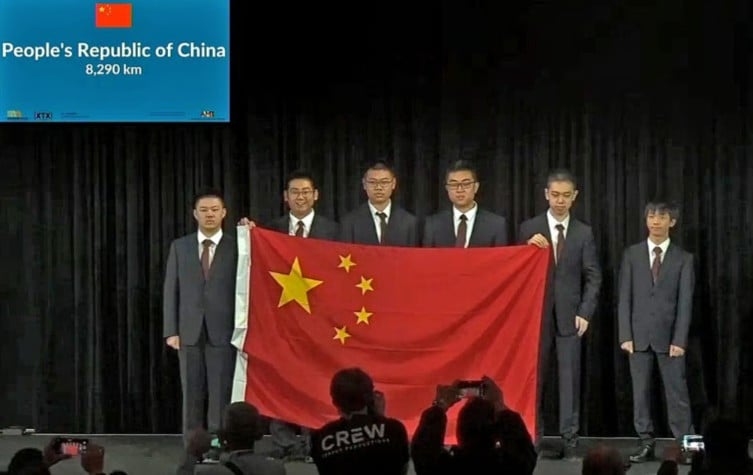
Each year, the host country submits up to 30 problems for the competition. Team leaders from more than 100 countries then select six problems – each worth a maximum of 7 points.
Last year, Qiming ranked fifth with 35 points out of 609 contestants. This earned him his first gold medal, but the Chinese team lost the championship to the United States due to a loss in total points, ending their five-year streak of winning the championship.
This year, Qiming and his five teammates aim to regain glory for the Chinese national team.
In the first five problems, all six Chinese contestants scored perfect scores - 35 points each. Meanwhile, two members of the American team were deducted 3 points, reducing the team's total score. In problem 6 - the most difficult challenge - China scored 21 points, including two perfect solutions. The American team only scored 9 points for this problem.
On Friday, Qiming won his second consecutive IMO gold medal, leading China to defeat arch-rivals the United States. He scored 36 points, ranking 12th out of 630 participants. China reclaimed the title with six gold medals and a total of 231 points, while the United States scored 216 points, with five gold medals and one silver.
IMO is more than just an IQ test. Since 2000, eight IMO medalists have gone on to win the Fields Medal, the highest award in mathematics.
One of the most famous winners was Terence Tao who won the IMO gold medal in 1988 at the age of 13, becoming the youngest person to achieve this feat.
37 years later, Tao, now a professor at UCLA (USA), returned to Australia to present medals to this year's outstanding contestants at the closing ceremony.
“IMO it’s always like that. Problem number 6 is really difficult and almost no one can solve it. I can’t solve it either,” he told the audience.
“The world is very unpredictable now. I can’t say what will happen in the future. But this is the pinnacle of math competitions, and you have really risen to the challenge.”
After the closing ceremony, the host team Australia handed over the IMO flag to the Chinese team. The 2026 IMO will be held in Shanghai.
The first IMO was held in 1959, but China did not participate until 1985, and only won a bronze medal the first time. Four years later, China won its first championship.
In the 36 years since, China has dominated the stage with 25 championships and a total of 191 gold medals.
Source: https://vietnamnet.vn/cau-be-bai-nao-la-than-dong-toan-hoc-doat-huy-chuong-vang-olympic-toan-quoc-te-2424573.html






![[Photo] Opening of the 14th Conference of the 13th Party Central Committee](https://vphoto.vietnam.vn/thumb/1200x675/vietnam/resource/IMAGE/2025/11/05/1762310995216_a5-bnd-5742-5255-jpg.webp)









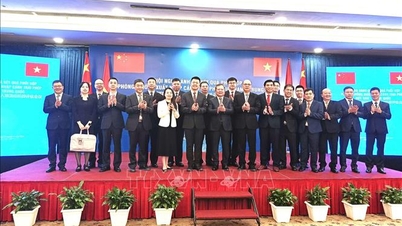



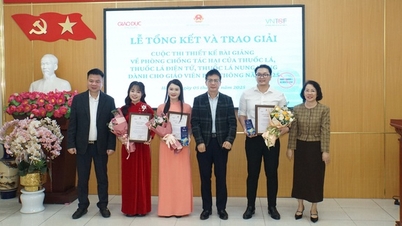

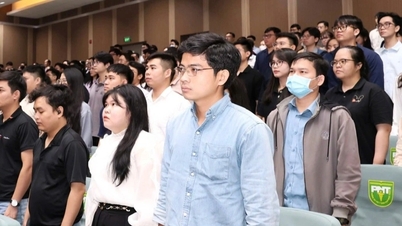

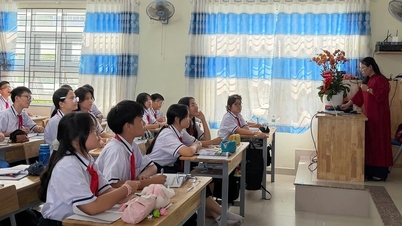

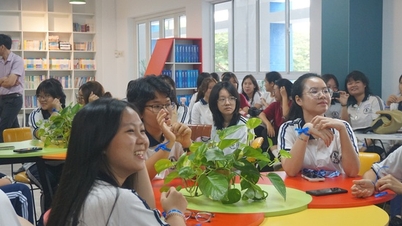
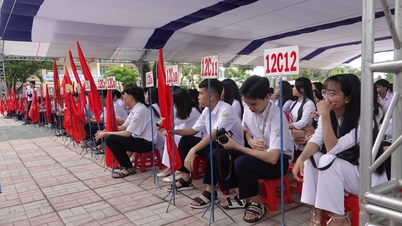




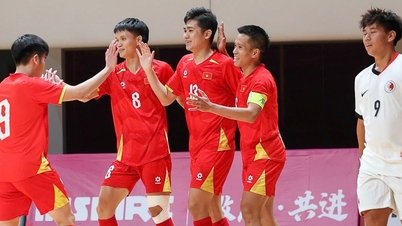
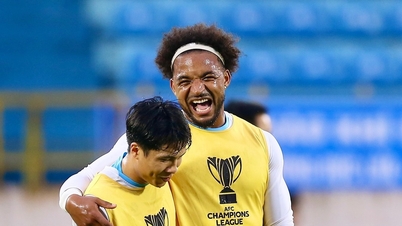




![[Photo] Panorama of the Patriotic Emulation Congress of Nhan Dan Newspaper for the period 2025-2030](https://vphoto.vietnam.vn/thumb/1200x675/vietnam/resource/IMAGE/2025/11/04/1762252775462_ndo_br_dhthiduayeuncbaond-6125-jpg.webp)

































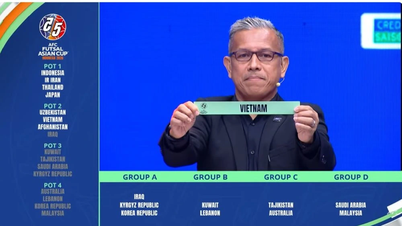

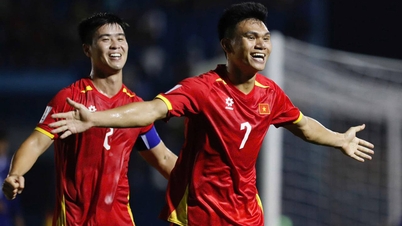





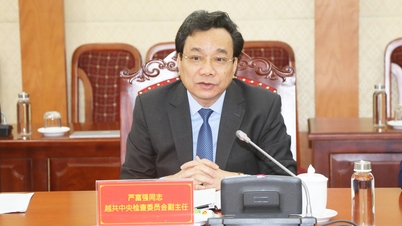

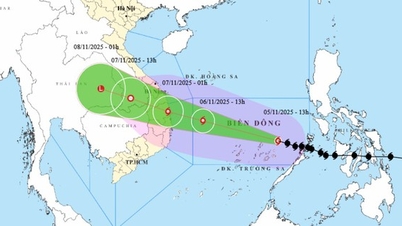




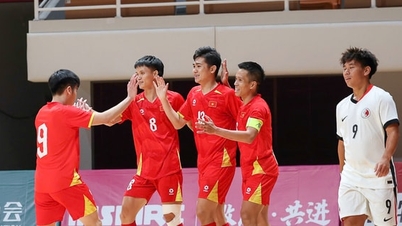


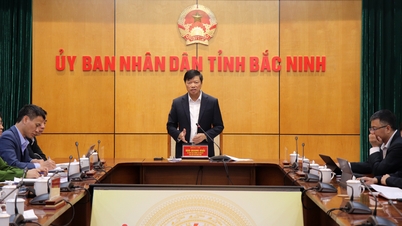




















Comment (0)